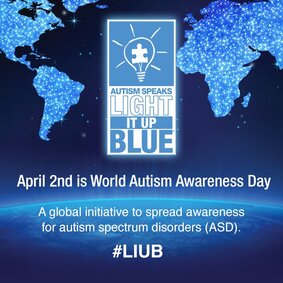 World Autism Day is celebrated annually on April 2; the observation of this day is a time to “Light it Up Blue” by showing awareness and concern for those with Autism Spectrum Disorder (ASD). Autism is a spectrum, meaning there's not just one type of autism, but many subtypes. Each person with autism has a different set of strengths and challenges. Some people with autism may require significant support in their daily lives, while others may need less support or can live independently. Autism can impact a person's social skills, communication, relationships, and self-regulation. If you are a teacher with students who have autism in your classroom here are some tips for helping those students thrive in the classroom: 1. Avoid sensory overload. 2. Use visuals. 3. Be predictable. 4. Keep language concrete. 5. Directly teach social skills. 6. Treat students as individuals. 6 Tips for Teaching Students with Autism The following are ten ideas to use in the classroom to ensure students with autism feel included. 1. Learn about the learner from the learner. 2. Teach to fascinations. 3. Get them talking. 4. Give choices. 5. Consider handwriting alternatives. 6. Help with organizing. 7. Support transitions. 8. Create a comfortable classroom. 9. Take a break. 10. Include. Supporting Students with Autism: 10 Ideas for Inclusive Classrooms Here are a few resources for learning more about people with autism: The Importance of Peers in Inclusive Education for Individuals with ASD 9 Tips for Interacting with Individuals with Autism Free Online Webinars: Autism Education for Individuals, Parents, and Professionals
1 Comment
Social emotional learning is important to students' academic success and future achievements. Teaching social and emotional skills takes a subtle approach to introduce topics daily in classroom activities. Use social emotional learning games to start the day, give students a break between academic lessons, or as a way to reflect on the school day.
Games, apps, and activities teach SEL to students in a way that's fun and interactive so sometimes they won't even know they're learning. Even games that don't overtly teach SEL skills can help students succeed with responsible decision making, problem solving, and critical thinking skills. Using digital games and apps create space for teachers to find more time throughout their day. While their students are learning important SEL skills and having fun, the teachers could be practicing self-care and mindfulness. Below you'll find resources for SEL activities, apps, and games for your students or children. Social-Emotional Learning Activities for Online Teaching Emotional Intelligence Apps and Games Using Digital Games for SEL Assessment and Skill Building The 5 Best Social Emotional Learning Apps for Teachers Using Games to Teach Social Emotional Skills 20 Evidence-Based Social Skills Activities and Games for Kids Peekapak SEL Curriculum and Games The International Day of Happiness is celebrated annually on March 20 as a way to “recognize the importance of happiness in the lives of people around the world.” The theme in 2021 for this observed celebration is “Happiness for All Forever.”
Consider these Sixteen steps for living a happy life starting right now. Read the article for an explanation of how these steps are proven to make your life more productive, successful, and happy. 1. Be committed. 2. Remember people care about you, not your success. 3. Be grateful every day. Gratefulness is linked to feeling better about your life, more enthusiasm, and the willingness to help others. Take time every day to journal or list grateful notes every day. 4. Take action. 5. Know money doesn’t buy happiness, although it can decrease stress and anxiety when your needs are met. 6. Don’t take rejection personally. 7. Have a backup plan. 8. Improve your social skills. 9. Travel, even if it's just to the next town over. 10. Don’t multitask. 11. Embrace a growth mindset – a way of thinking that thrives on challenges and views failures as growth and opportunity to strengthen abilities, rather than a result of unintelligence. 12. Balance work and life. 13. Don’t hold grudges. 14. Be Present in the moments. 15. Take care of yourself, then help others. There are seven remarkable powerful keys to happiness and success (according to science). To maintain happiness and success, remember to find happiness first, then focus on completing the goal second; there is importance behind refraining from goal-oriented happiness. Goal-oriented happiness is thinking that happiness is achieved after completing a goal, rather than finding joy throughout the process or journey. Seppala’s seven science-based ways to rediscover joy and grow more successful –
Recommended ways on how to be happy: 25 habits to add to your routine; practice these daily, weekly, monthly, and yearly habits by taking time to discover what does and doesn’t work for you. Daily Habits – smile, exercise, get plenty of rest, eat with mood in mind, be grateful, give a compliment, breathe deeply, acknowledge the unhappy moments, keep a journal, face stress head on. Weekly Habits – declutter, see friends, plan your week, ditch your phone, get into nature, explore meditation, consider counseling, find a self-care ritual. Monthly Habits – give back, take yourself out, create a thought list. Yearly Habits – take time to reflect, reevaluate goals, take care of your body, let go of grudges. This one is for the college students; 18 things you need to do to be happy in college!
Sometimes there is difficulty to balancing what’s best for children with what makes them happy, but know that what’s best and what makes them happy isn’t mutually exclusive. Here’s how to raise happy kids: 10 steps backed by science; read the article for an explanation of each step. Research shows that happier kids are more likely to turn into successful, accomplished adults.
The International Day of Happiness lists 10 steps to global happiness for 2021:
What makes you happy? | International Day of Happiness video, this video is a compilation of people around the world saying what makes them happy. The surprising science of happiness by Dan Gilbert TED Talk Since 1987, March is known as Women’s History Month as a month to celebrate women’s contributions to history, culture, and society. This month of celebration grew from the original concept of International Women’s Day, that has been observed globally since March 8, 1911. Every year, Women’s History Month focuses on a new theme; this year, 2021, the designated theme for March is “Valiant Women of the Vote: Refusing to Be Silenced.” Below are Women's History Month Videos that will help you understand more about what it is and why we celebrate it. Gloria Steinem’s Advice to Young Women: Listen to Yourselves, Not to Me March is Women's History Month. Watch How it Progressed Through the Years First of Many – Women’s History Month 2021 TED Talk: To Future Generations of Women, You are the Roots of Change Iconic Women to Celebrate This Women’s History Month Events to Participate in to Celebrate Women’s History Month with The Smithsonian Institution, Library of Congress, and National Archives If you're looking to learn more about how you can empower and support all kinds of women, read the articles below: Empowering Her Empowers all of Us Women as Allies for Women: Understanding Intersectionality Social and Emotional Learning is Essential for Girls to Thrive Image from the University of Akron.
Trauma-Informed Care is an approach that assumes that an individual is more likely than not to have a history of trauma. It recognizes the presence of trauma symptoms and acknowledges the role trauma may play in an individual's life. It's not used to treat symptoms or issues related to abuse or trauma, but rather to provide support services in a way that is accessible and appropriate.
When trauma occurs, it affects an individual's sense of self, their sense of others and their beliefs about the world. Being able to recognize the signs and symptoms of trauma can help us avoid the possibility of re-traumatization. What IS trauma though? Trauma is defined as a deeply distressing or disturbing experience. Each experience is different for each person; one experience may not be traumatizing for one individual, but it may be for another. Below is a list of Adverse Childhood Experiences that have a tremendous impact on future violence victimization and perpetration, and lifelong health and opportunity. ACEs: Emotional, verbal, physical, or sexual abuse Parental separation or divorce Substance abuse by household member Witness to domestic violence Household member with mental illness Neglect Incarcerated household member Toxic stress damages the structure and function of a child's developing brain according to neuroscientists and pediatricians at Harvard, Rockefeller University, and Child Trauma Academy. When children are overloaded with stress hormones, they're in fight, flight, or freeze mode. They can't learn in school, they often have difficult trusting adults, or developing healthy relationships with peers. Often they turn to drugs, alcohol, and other unhealthy habits to escape their problems. However, resilience research shows that the appropriate integration of resilience factors (asking for help, trusting relationships, forming a positive attitude, listening to feelings) can help people improve their lives. So what can we do? We can form a Trauma-Informed Care approach in the spaces we live and work. Below are resources that will help you under TIC more and apply it to your work or household. What is Trauma-Informed Care? - University of Buffalo Trauma-Informed School Trauma-Informed Classrooms and Transformational Schools Trauma-Informed Parenting Parenting a Child Who Has Experienced Trauma How to Cope with Traumatic Events Like Coronavirus What's Your ACE Score? |
AuthorWrite something about yourself. No need to be fancy, just an overview. Archives
June 2022
Categories |

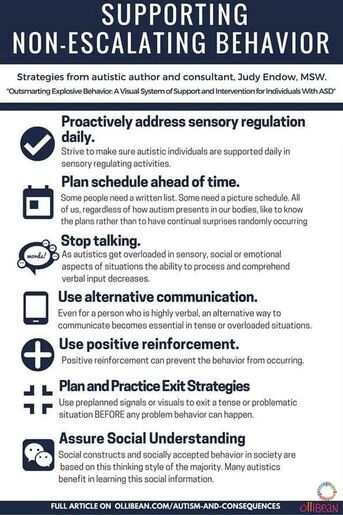
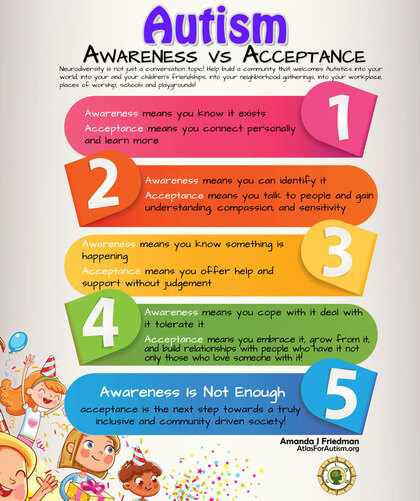
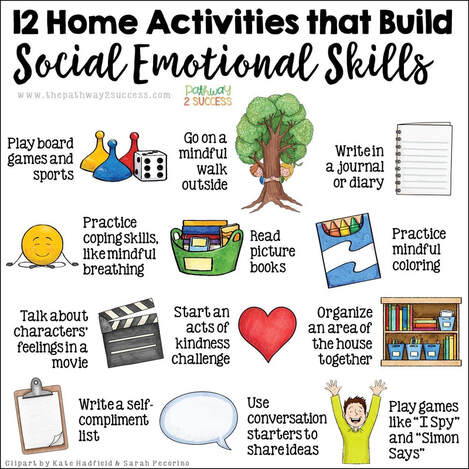
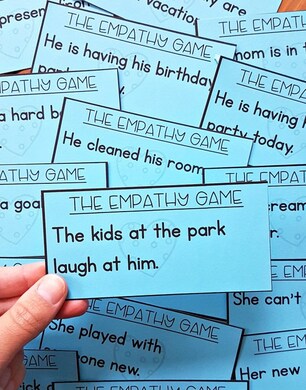

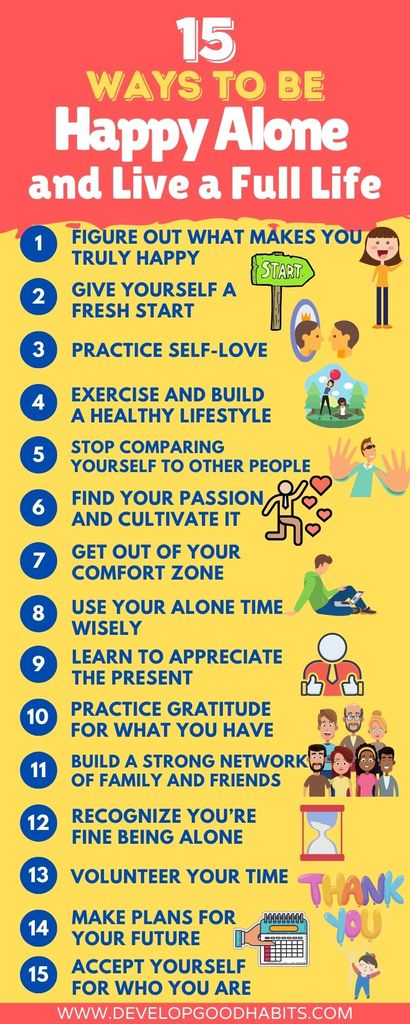

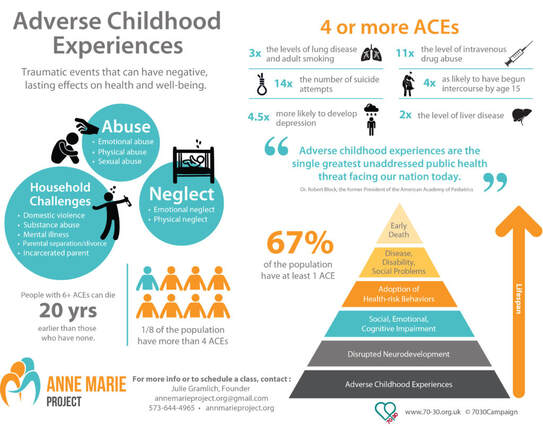
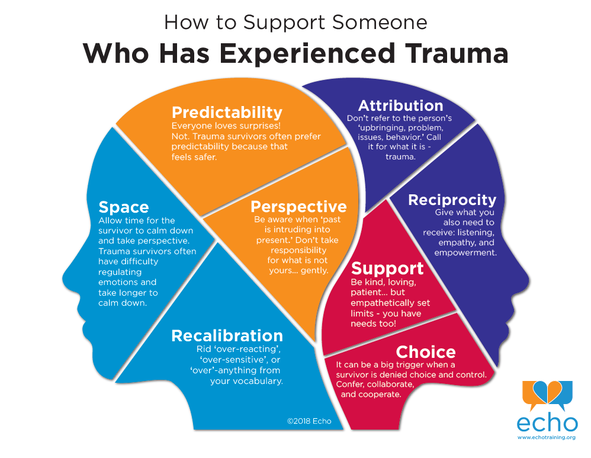
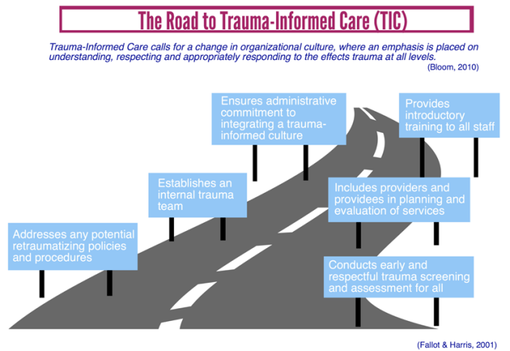
 RSS Feed
RSS Feed